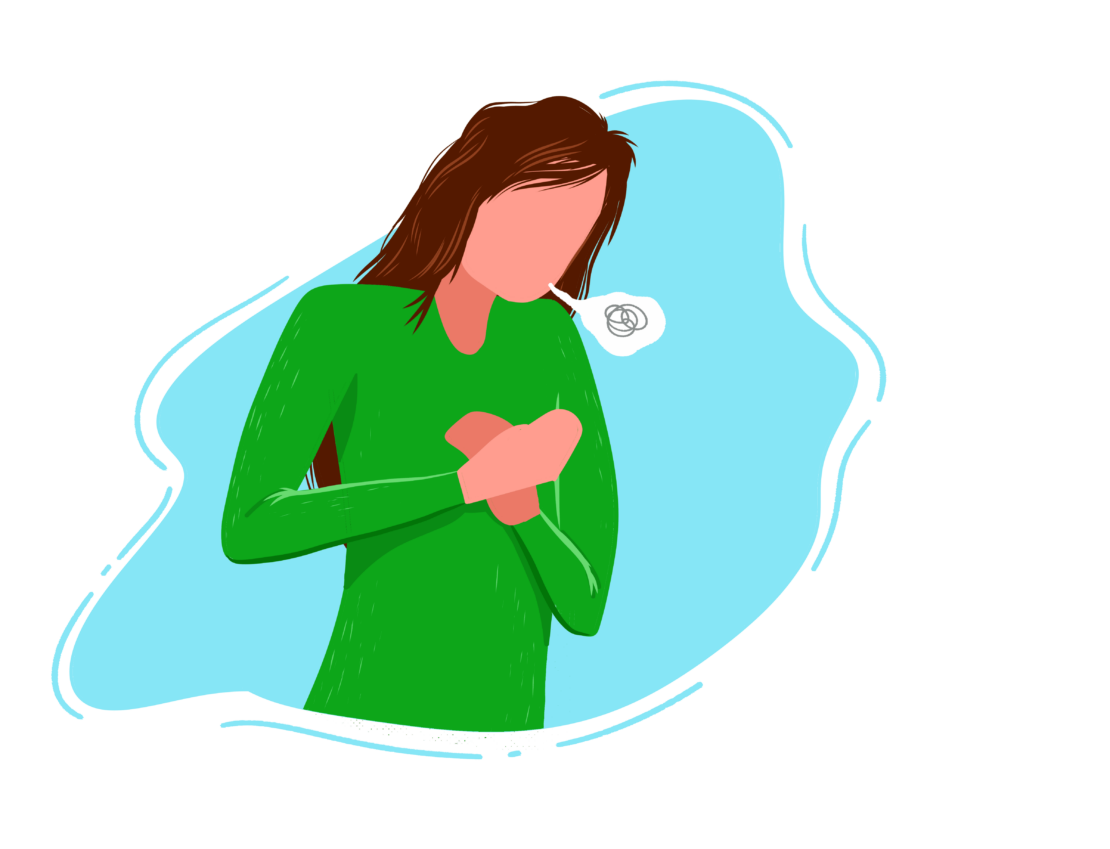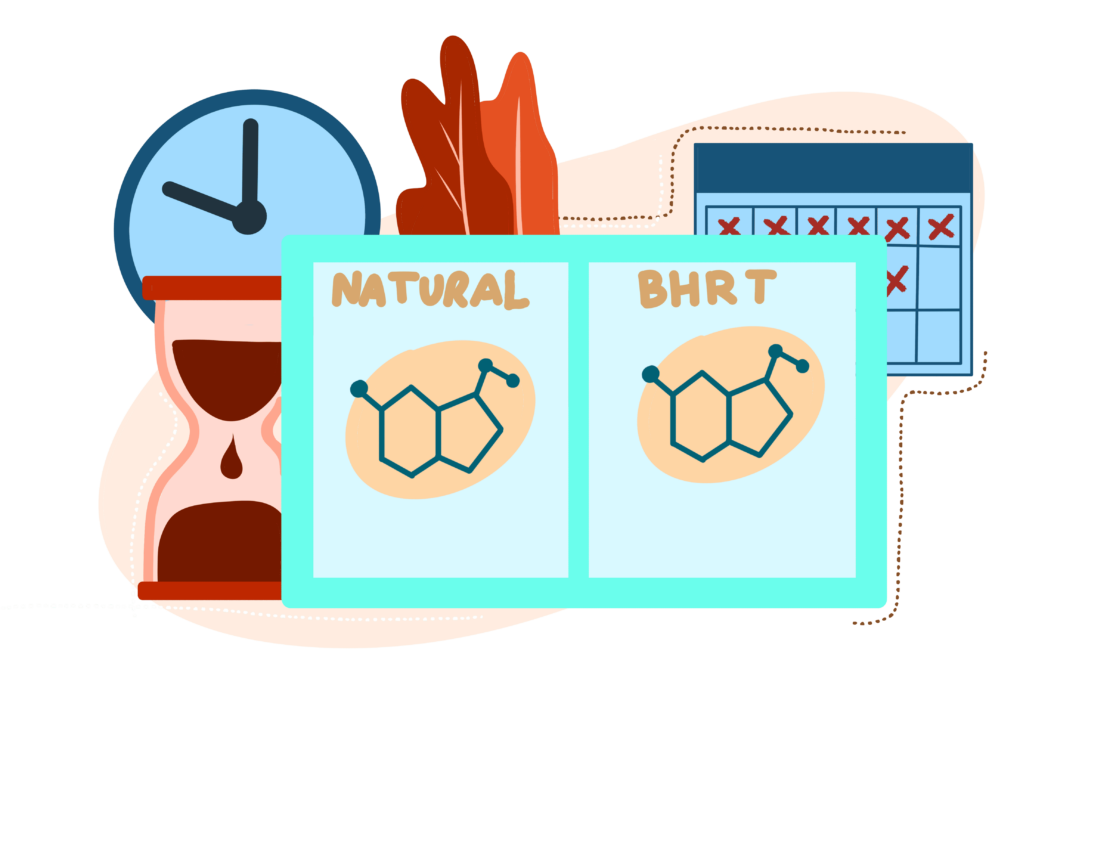Menopause heart palpitations are a common symptom of hormonal changes in women going through menopause. They are characterized by fluttering or irregular heartbeats. Studies show that palpitations affect up to 42% of perimenopausal women and 54% of postmenopausal women. Hormonal changes, specifically decreasing estrogen levels, lead to these palpitations, compromising cardiovascular health. One possible therapeutic option is hormone replacement therapy (HRT), however there are risks to be aware of. Palpitations can also be managed with a change in lifestyle, including reducing stress, exercising, and consuming less caffeine.
Periodic heart palpitations are common during the perimenopause and they may be caused by physiological changes. It is essential to get medical attention for severe symptoms in order to rule out underlying heart problems. Delve into the article to know more about menopausal heart palpitations.
What are Menopause Heart Palpitations?
Menopause heart palpitations are the term used to describe the fluttering or hammering sensations in the chest or irregular heartbeat that women encounter when on menopause. Feelings of a pounding, fluttering, or rapid heartbeat are the most common characteristics of heart palpitations. They are frequently caused by stress, exercise, medication, or, in rare cases, a medical issue.
It is known to medical communities that heart palpitations are relatively common with women in their menopausal stages. According to Jane Carpenter et al. from Indiana University School of Nursing in the USA, heart palpitations are reported by up to 42% of perimenopausal women and 54% of postmenopausal women. The study proves that factors aging and menopause creates the occurrence of hormonal decline which disrupts the health of the cardiovascular system.
Furthermore, variations in blood pressure and heart rate variability might result from variations in hormone levels, which may worsen palpitations. External factors such as coffee consumption and inactivity are some other factors that can lead to palpitations during menopause. Effective administration and therapy techniques for menopausal heart palpitations require an awareness of their underlying causes.

What Causes Menopause Heart Palpitations?

Menopause heart palpitations is mainly caused by hormonal changes, specifically a decrease in estrogen levels. The role of estrogen in maintaining cardiovascular health is proved by the fact that women develop more cardiovascular diseases upon decline in hormones during menopause.
Based on the study of Ayesha Javed et al., from Heart’s International Hospital, it’s mentioned on their study estrogen has a significant impact on heart palpitation as it suppress body receptors that increases heart rate, therefore when hormones decline due to menopause, these body receptors grow and increases the heart rate which also causes heart palpitations.
In order to properly manage palpitations associated with menopause, it is essential that you understand such underlying hormonal changes. In terms of available treatments, estrogen replacement such as Hormone Replacement Therapy (HRT) has been proposed as a possible means of reducing heart palpitations and other symptoms associated with menopause.
Can HRT stop Menopause Heart Palpitations?
Estrogen replacement such as Hormone Replacement Therapy (HRT) has shown promise in treating menopause heart palpitations.
According to the study conducted by Heart’s International Hospital, they’ve found that the way that HRT delivers estrogen affects how well it prevents cardiovascular diseases. Compared to oral estrogen therapy, transdermal estrogen therapy offers a more prolonged release and consistent blood levels of estrogen. Also, estrogen supplementation aids a lot in suppressing body receptors that triggers heart rate increases and alters the effects of hormone deficiency which causes heart palpitations.
Nonetheless, it’s important to take into account any potential risks and adverse effects of HRT, such as an elevated risk of blood clots as well as breast cancer. Thus, consulting with a healthcare professional to decide whether hormone replacement therapy (HRT) is suitable for treating menopausal symptoms, such as heart palpitations is a must. Knowing the alternative therapies and lifestyle changes to prevent hormonal heart palpitations can offer further understanding of how to treat this typical menopausal symptom.

How to Stop Hormonal Decline Heart Palpitations?

There are several methods for putting an end to hormonal heart palpitations, such as stress reduction and lifestyle changes. Before going for any medical solutions, it’s always best to try first some healthy and natural ways. Below are some of the options you can do relieve your menopausal heart palpitations:
Relaxation Techniques
Relaxation techniques can be really effective for managing menopausal heart palpitations. Deep breathing, meditation, yoga, and gradual muscle relaxation are all effective methods for reducing stress and anxiety. These methods can assist and control heart rate and rhythm by encouraging relaxation and lowering the body’s physiological reactions. This may lessen or even eliminate palpitations by decreasing their frequency and intensity.
Regular Exercises
Take Less Caffeine
Since caffeine is a stimulant that can cause or worsen palpitations in certain people, cutting back on caffeine intake may help manage heart palpitations. People with underlying cardiac conditions and those
who are sensitive to caffeine may experience palpitations in their hearts if caffeine intake is too much.
Estrogen Supplementation
Estrogen supplementation such as HRT are the most common medical remedy for menopausal symptoms. As heart palpitations occur more often upon aging specially on menopause, it is therefore considered as a common symptom among menopausal women. There are several studies proving the effectiveness of HRT in relieving the menopausal symptoms.
It’s important to keep in mind that each person may react differently to these methods, therefore seeking individualized guidance from a healthcare provider is highly recommended. Now that we’re talking about the perimenopause, knowing how heart palpitations might appear at this time of transition will help you manage menopausal symptoms more skillfully.
Heart Palpitations in Perimenopause Stages
Heart palpitations during perimenopause stages are common occurrences due to hormonal fluctuations. Research has suggested that as early as during the perimenopausal stage of menopause, occurrence of heart palpitations is already frequent.
In the study led by Janet Carpenter from the Indiana University School of Nursing, their findings suggest that heart palpitations are more common in perimenopausal and surgically postmenopausal women, which implies that menopausal physiological changes may be involved in the onset or persistence of palpitations. Heart palpitations were reported by up to 42% of perimenopausal women and 54% of postmenopausal women. The perimenopause’s hormonal shifts can cause problems for the cardiovascular system, such as fluttering in the chest or irregular heartbeats.
When severe symptoms like dizziness, shortness of breath, chest pain, or fainting accompany palpitations, it’s necessary to get medical help immediately to rule out any underlying heart issues.
When to Consult a Doctor?
We recommend getting in touch with a medical professional if you experience any troubling symptoms, such as palpitations coupled with dizziness, fainting, chest pain, shortness of breath, or if the palpitations are severe, frequent, or preventing you from going about your everyday business. These symptoms could point to an underlying cardiac ailment or other health problems that need to be assessed and treated by a medical practitioner. In order to guarantee appropriate diagnosis and treatment, it’s also important to share any new or worsening symptoms with your doctor if you have a history of heart disease or other serious medical disorders.
Don’t hesitate to contact us at the Online Menopause Center with any queries or worries you may have about heart palpitations during menopause. We’re here to support you since your health and wellbeing are our top priority.

